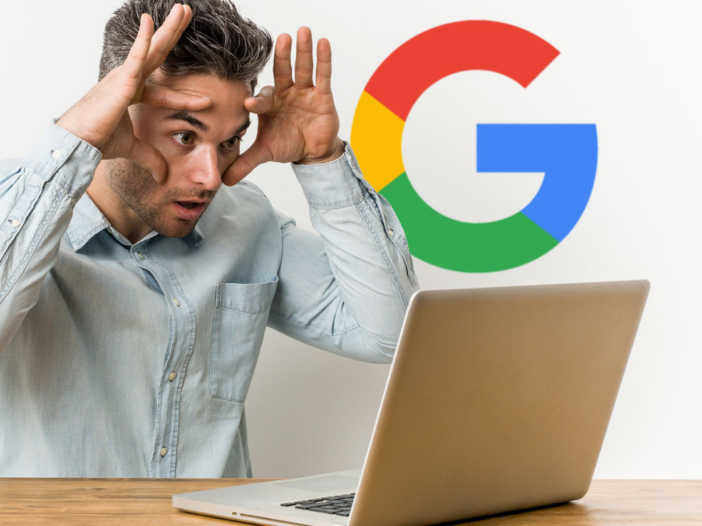Swiss Digital Marketing Agency Netpulse AG Leads Online Success with Innovative Strategies – GlobeNewswire
| Source: netpulse AG | Online Marketing Agentur für Google Ads, SEO & Social Media Marketing
Winterthur, Oct. 31, 2024 (GLOBE NEWSWIRE) — Winterthur, Zurich –
Swiss Digital Marketing Agency, Netpulse AG, has been a key player in boosting businesses’ online presence since its founding in 2009. Located in Winterthur, Switzerland, this agency is propelled by a team of 20 skilled professionals who are dedicated to increasing organic traffic for clients across a wide range of industries.
Netpulse AG offers specialized services designed to meet the unique needs of each client. Their focus on search engine optimization (SEO) helps improve how their clients show up in search results. They employ technical SEO, local SEO, and content marketing strategies to help businesses succeed online. Recently, they’ve been able to increase traffic for several e-commerce clients, leading to higher sales.
Besides SEO, the agency excels in digital marketing through Google Ads and Microsoft Ads. They’re known for creating effective search campaigns, display ads, and remarketing strategies. These efforts help clients reach their target audiences effectively, which leads to noticeable results.
As Lukas Nauer, a key figure at the company, explains, “Our main objective is to ensure our clients are seen by their potential customers and engage effectively with them. We focus on creating unique strategies that are data-driven and tailored to the individual needs of each client. Our recent campaigns have clearly demonstrated the strength of personalized digital strategies in attracting and retaining customers.”
Netpulse AG takes a thorough look at each client’s market position and digital strengths. This insight helps them craft customized strategies that fit the goals and resources of the client. In web design, they prioritize both looks and function, creating user-friendly sites that also work well with search engines.
The agency boasts a successful track record, having served over a thousand satisfied customers. They proudly hold the status of a Google Premium Partner Agency. Their diverse client base ranges from small businesses to large corporations, showcasing their ability to adapt to various commercial needs.
Their digital solutions have delivered substantial returns on investment for many clients. By focusing on measurable success and constant improvement, they’ve helped businesses exceed their digital marketing goals and establish strong connections with their audiences. Among the array of services offered, their expertise is clearly reflected on their website at https://www.netpulse.ch.
Lukas Nauer also noted, “Our team is dedicated to staying at the forefront of digital marketing advancements. By combining our technical know-how with creative thinking, we are able to deliver results that truly make a difference. We also ensure that we maintain transparency and fair pricing – central to our commitment to client satisfaction.”
Netpulse AG invites businesses interested in enhancing their digital marketing efforts to reach out. They offer a free consultation as a first step to understand the unique challenges and opportunities facing potential clients. To locate them or get in touch, you can use their Google Maps listing at https://maps.app.goo.gl/9bFUfxgTGGNjfN1q8.
https://www.youtube.com/watch?v=Hb7uJQ071pc
Netpulse AG remains committed to using their digital marketing expertise to serve the varied needs of their clients. Their dedication to innovation and results-focused strategies positions them as an essential partner for businesses navigating the complexities of online marketing. They continue to play an important role in shaping the digital future for businesses in Switzerland and beyond.
###
For more information about netpulse AG | Online Marketing Agentur für Google Ads, SEO & Social Media Marketing, contact the company here:
netpulse AG | Online Marketing Agentur für Google Ads, SEO & Social Media Marketing
Lukas Nauer
+41 52 508 28 28
info@netpulse.ch
Neuwiesenstrasse 44
8400 Winterthur
Switzerland
Google Predicts Strength Of Backlinks Ranking Factor Will Drop – Search Engine Journal
Join this leadership discussion for proven techniques to build long-term relationships and keep your clients coming back.
Discover the latest trends, tips, and strategies in SEO and PPC marketing. Our curated articles offer in-depth analysis, practical advice, and actionable insights to elevate your digital marketing efforts.
In this guide, industry experts explore the challenges and opportunities presented by the onslaught of AI tools, and provide actionable tips for thriving amid these shifts.
Discover the latest trends, tips, and strategies in SEO and PPC marketing. Our curated articles offer in-depth analysis, practical advice, and actionable insights to elevate your digital marketing efforts.
Join three of Reddit’s top executives in this exclusive AMA (Ask Me Anything) to discover how you can tap into Reddit’s unique platform to drive brand growth.
Join this leadership discussion for proven techniques to build long-term relationships and keep your clients coming back.
Google Search Advocate John Mueller predicts the strength of backlinks as a ranking factor will drop over time.
During a live session at Brighton SEO, Google Search Advocate John Mueller makes a prediction about the future of backlinks.
Mueller, joined by fellow Googler Lizzi Sassman and guest Myriam Jessier, fields several questions during a live recording of the Search Off The Record podcast.
Since it’s a podcast, the questions are addressed as a group discussion, as the hosts answer pre-selected questions rather than interacting with the live audience.
Together, the hosts answer a question about how Google penalizes backlinks, which asks:
“As an SEO, we are interested in backlinks. However, actively working on backlinks often becomes a gray area in terms of link schemes. What are Google’s main criteria for penalizing backlinks?”
After some banter between the hosts, Mueller takes a direction with his answer that’s a slight departure from the original question.
Google representatives are often careful when answering questions regarding ranking and penalty criteria.
Generally, Google discourages any form of unnatural linkbuilding. Giving away too many details about penalties could encourage “grey hat” behavior or walking a careful line between what’s acceptable and what isn’t.
Instead of speaking about penalties, Mueller discusses the backlinks ranking signal in general and why it may become less critical to SEO professionals in the future.
As Google becomes more adept at understanding how content fits in with the rest of the web, Mueller suggests Google’s algorithm won’t have to rely so much on inbound links.
Mueller says:
“Well, it’s something where I imagine, over time, the weight on the links at some point will drop off a little bit as we can figure out a little bit better how the content fits in within the context of the whole web.”
Perhaps this is Mueller’s way of saying penalties aren’t worth worrying about because backlinks won’t be as valuable to acquire in the future.
However, suggesting backlinks are only helpful for understanding content disregards all the other information they communicate.
A backlink profile can tell you so much more about a website, such as the extent to which it’s trusted by others, who it’s trusted by, and how authoritative the site is in its particular niche.
Is Google capable of determining all that from the on-page content alone?
Mueller doesn’t speak to the authority aspect of inbound links, though he does say they’ll continue to be helpful to Google for content discovery.
Mueller continues:
“And to some extent, links will always be something that we care about because we have to find pages somehow. It’s like how do you find a page on the web without some reference to it?”
But my guess is over time, it won’t be such a big factor as sometimes it is today. I think already, that’s something that’s been changing quite a bit.”
Hear the full discussion at the 13:17 mark in Google’s latest Search Off The Record podcast:
Featured Image: AlenD/Shutterstock
Matt G. Southern, Senior News Writer, has been with Search Engine Journal since 2013. With a bachelor’s degree in communications, …
Conquer your day with daily search marketing news.
Join Our Newsletter.
Get your daily dose of search know-how.
In a world ruled by algorithms, SEJ brings timely, relevant information for SEOs, marketers, and entrepreneurs to optimize and grow their businesses — and careers.
Copyright © 2024 Search Engine Journal. All rights reserved. Published by Alpha Brand Media.
Ex-Googler Answers Why Google Search is Getting Worse – Search Engine Journal
Join this leadership discussion for proven techniques to build long-term relationships and keep your clients coming back.
Discover the latest trends, tips, and strategies in SEO and PPC marketing. Our curated articles offer in-depth analysis, practical advice, and actionable insights to elevate your digital marketing efforts.
In this guide, industry experts explore the challenges and opportunities presented by the onslaught of AI tools, and provide actionable tips for thriving amid these shifts.
Discover the latest trends, tips, and strategies in SEO and PPC marketing. Our curated articles offer in-depth analysis, practical advice, and actionable insights to elevate your digital marketing efforts.
Join three of Reddit’s top executives in this exclusive AMA (Ask Me Anything) to discover how you can tap into Reddit’s unique platform to drive brand growth.
Join this leadership discussion for proven techniques to build long-term relationships and keep your clients coming back.
Ex-Googler Marissa Mayer insists the problem isn’t Google search and explains it’s the web itself that’s getting worse
An ex-Googler named Marissa Mayer appeared on the Freakonomics podcast to discuss the topic of whether Google is getting worse. Mayer suggested that asking why Google Search is getting worse is the wrong question. Her explanation of what is wrong turns the spotlight back on the web itself.
Marissa Mayer was employee #20 at Google, overseeing engineers, becoming director of consumer web products and was a part of the three-person team that worked on creating AdWords.
Mayer worked on many projects, including Google Images, News, Maps, and Gmail. She was at one point in charge of Local, Maps, and Location Services.
She eventually left Google to become the president and CEO of Yahoo! for five years.
There are few people in the world with her level of expert knowledge of and history with search, which makes her views about the current state of search of great interest.
The host of the podcast started out the show by describing how in their experience Google is not as good as it used to be.
Freakonomics:
“The power of that revelation faded, as revelations do, and we all began to take Google for granted.
When you needed some information, you just typed a few words into the search box and, very quickly, you got the answer you were looking for, usually from an authoritative source.
But today? To me, at least, it doesn’t feel the same.
My search results just don’t seem as useful.
I feel like I’m seeing more ads, more links that might as well be ads, and more links to spammy web pages.”
Marissa Mayer agreed that the search experience is different today.
But in her opinion the problem isn’t Google. The way she sees it, Google is only a window onto the Internet.
Mayer shared her opinion:
“I do think the quality of the Internet has taken a hit.
…When I started at Google, there were about 30 million web pages, so crawling them all and indexing them all was relatively straightforward.
It sounds like a lot, but it’s small.
Today, I think there was one point where Google had seen more than a trillion URLs.”
The host of the show asked if the increase in the number of URLs is the reason why search results are worse.
Mayer answered:
“When you see the quality of your search results go down, it’s natural to blame Google and be like, ‘Why are they worse?’
To me, the more interesting and sophisticated thought is if you say, ‘Wait, but Google’s just a window onto the web. The real question is, why is the web getting worse?’ “
The host of the show went along with the idea that the problem is that the Internet is getting worse and, as Marissa suggested, he asked her why the web getting worse.
Mayer offered an explanation that deflects from Google and lays blame for poor search results on the web itself.
She explained the reason why the web is worse:
“I think because there’s a lot of economic incentive for misinformation, for clicks, for purchases.
There’s a lot more fraud on the web today than there was 20 years ago.
And I think that the web has been able to grow and develop as quickly as it has because of less regulation and because it’s so international.
But we also have to take the flipside of that.
In a relatively unregulated space, there’s going to be, you know, economic mis-incentives that can sometimes degrade quality.
And that does put a lot of onus on the brokers who are searching that information to try and overcome that. And it’s difficult.
It kind of has to be more, in my view, an ecosystem-style reaction, rather than just a simple correction from one actor.”
The idea that the Internet is low quality because it is relatively unregulated is debatable.
There are government agencies dedicated to protecting consumers from fraudulent online activities. One example is the the United States government Federal Trade Commission guidelines on advertising, endorsements and marketing. These rules are the reason why websites disclose they are profiting from affiliate links.
Google itself also regulates the Internet through its publishing guidelines. Failure to abide by Google’s guidelines can result in exclusion from the search results.
Google’s ability to regulate the Internet extends to the quality of content itself as evidenced by the fact that out of eight algorithm updates in 2022, six of them were focused on spam, product reviews and demoting unhelpful content.
It could be said that Google’s algorithm updates proves that Google is more focused on fixing Internet content than it is on improving the technology for returning relevant search results.
That so much of Google’s efforts is focused on encouraging an “ecosystem-style reaction” aligns with Marissa Mayer’s observation that the problem with search is the websites and not Google.
Is Google Search worse because websites today are worse or is the problem with Google itself and they just can’t see it?
Is Google Getting Worse?
Featured image by Shutterstock/Asier Romero
I have 25 years hands-on experience in SEO, evolving along with the search engines by keeping up with the latest …
Conquer your day with daily search marketing news.
Join Our Newsletter.
Get your daily dose of search know-how.
In a world ruled by algorithms, SEJ brings timely, relevant information for SEOs, marketers, and entrepreneurs to optimize and grow their businesses — and careers.
Copyright © 2024 Search Engine Journal. All rights reserved. Published by Alpha Brand Media.
SixPL Unveils SixPL Optimizer: Free SEO Tool for Accurate On-Page Analysis – EIN News
Using Google Trends To Optimize Your Content Strategy Timing [Podcast] – Search Engine Journal
Join this leadership discussion for proven techniques to build long-term relationships and keep your clients coming back.
Discover the latest trends, tips, and strategies in SEO and PPC marketing. Our curated articles offer in-depth analysis, practical advice, and actionable insights to elevate your digital marketing efforts.
In this guide, industry experts explore the challenges and opportunities presented by the onslaught of AI tools, and provide actionable tips for thriving amid these shifts.
Discover the latest trends, tips, and strategies in SEO and PPC marketing. Our curated articles offer in-depth analysis, practical advice, and actionable insights to elevate your digital marketing efforts.
Join three of Reddit’s top executives in this exclusive AMA (Ask Me Anything) to discover how you can tap into Reddit’s unique platform to drive brand growth.
Join this leadership discussion for proven techniques to build long-term relationships and keep your clients coming back.
Podcast: Download
Subscribe: Apple Podcast Google Podcasts Spotify
Creating content and want to know what was trending in search last week, month, or year? Google Trends can help you find useful and timely data. But how do you use it effectively?
If you want to create content that stays ahead of the curve, keeping up with the latest trends is an absolute must. And our guest has some insider tips to help you.
Having formerly held SEO roles at some of the world’s biggest publications, Louisa Frahm knows news SEO. And she knows how to use trends to her advantage.
Now, she’s now a Trends Curator at Google. And she joins Loren Baker to discuss Google Trends and how you can use it to plan your content.
What makes Google Trends so useful is that it shows exactly what people have searched for in the last hour or whatever time frame. Use it to catch hot news items, plan your marketing strategies, and more. Find out how to push your content to the top by using the unique features of Google Trends.
As Google Trends curators, we’re data journalists. It’s all about mining through so much data in terms of search queries and what people are interested in at any given time. It’s sifting through that and putting it together in an easy-to-understand way for the general public.– Louisa Frahm, 11:30
The real-time insights that you’re getting from Google Trends, that just sets them apart from everything. –Louisa Frahm, 29:25
I really like the way that you can drill down on the local level to pull some of the trend information.–Loren Baker, 14:04
[00:01] – How Louisa landed a job at Google.
[08:25] – What Louisa is doing now at Google Trends.
[15:07] – What are Google Trends breakout modules?
[16:05] – How news SEO professionals can benefit from Google Trends.
[18:48] – Can Google Trends be used for forecasting future content?
[20:32] – What is the difference between rising queries and top queries?
[21:52] – How to use Google Trends to influence new product development.
[24:09] – The example of bloating.
[25:51] – What the difference is between 30 and 90 on Google Trends.
[27:03] – A good way of going beyond keywords with head terms and long tail.
[27:52] – A hack for the front end.
[28:58] – Is there a difference between data on Google Trends vs Keyword Planner & Keyword Research Tools?
[30:32] – Can you set alerts and can it be country-specific?
[32:44] – A quick case study of water pills.
[35:46] – Looking at trends that are tapering off.
[38:25] –The urban dictionary challenge: top trending search on Google Trends now.
[40:45] – Last-minute tips on using Google trends for the holiday season.
[48:14] – What are breakout queries?
Resources Mentioned:
https://trends.google.com/
https://trends.google.com/trends/subscriptions
It is really interesting to match up the trends accordingly because I know in the world of SEO it’s very easy for us to just make an assumption. –Loren Baker, 39:07
Specifically for news SEOs, Google Trends will really help you, especially in the rising queries, to find those breakout questions that people are searching for. – Louisa Frahm, 16:08
Google Trends really stood out from all of the other tools to me because of its real-time capabilities.– Louisa Frahm, 10:12
For more content like this, subscribe to our YouTube channel: https://www.youtube.com/user/searchenginejournal
Connect with Louisa Frahm:
For the last seven years, Louisa Frahm has been mastering the art of SEO, on an agency level and in-house. Enterprise news SEO is her specialty. A pop culture junkie, fun enthusiast, and believer in living life to the fullest.
Connect with Louisa on LinkedIn: https://www.linkedin.com/in/louisa-frahm-67710922/
Connect with Loren Baker, Founder of Search Engine Journal:
Follow him on Twitter: https://www.twitter.com/lorenbaker
Connect with him on LinkedIn: https://www.linkedin.com/in/lorenbaker
Angie Nikoleychuk is the Content Marketing Manager at Search Engine Journal. Along with social media, copy, and marketing, she has …
Conquer your day with daily search marketing news.
Join Our Newsletter.
Get your daily dose of search know-how.
In a world ruled by algorithms, SEJ brings timely, relevant information for SEOs, marketers, and entrepreneurs to optimize and grow their businesses — and careers.
Copyright © 2024 Search Engine Journal. All rights reserved. Published by Alpha Brand Media.



